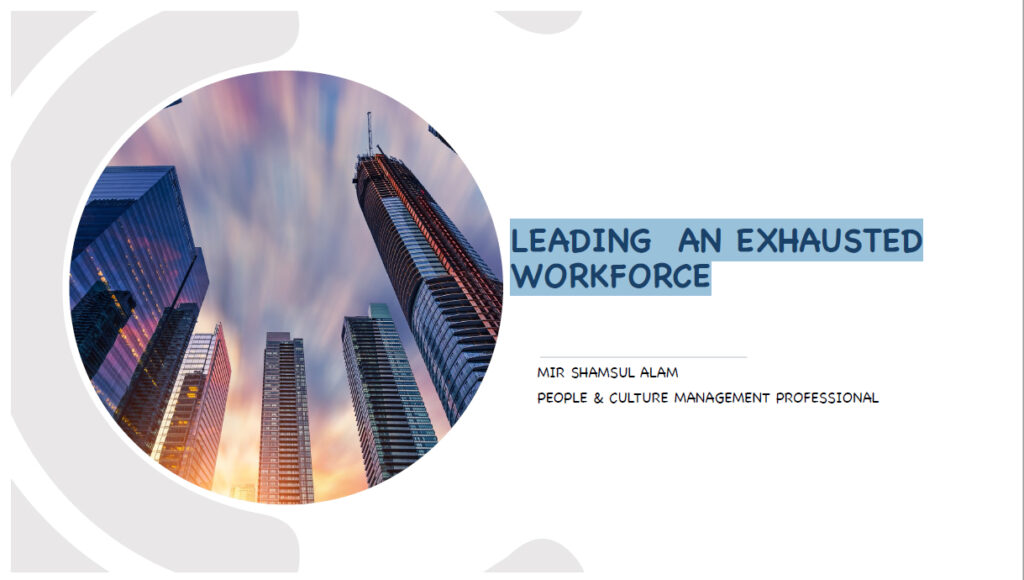
BE A ROLE MODEL
If you’re tense, irritable, withdrawn, or volatile, your team may suffer similarly. If your view of reality is wrapped by denial, delusion or us-and-them thinking, your team’s ability to take effective action is severely curtailed.
If you act out in harmful ways or make rash, inconsistent decisions, you will destroy trust and morale.
Bring your humanity front and center. Be a role model for managing inevitable human imperfection with mental flexibility, emotional openness, and healthy habits.
MENTAL FLEXIBILITY
Make a regular habit of asking for input and admitting what you don’t know.
Normalize and destigmatize admitting mistakes.
Acknowledge conflicting impulses and values, make it OK to change your mind when new information comes in, and apologize without embarrassment when you need to.
Consider a personal practice to get yourself out of mental ruts. Spend time in nature, journaling, starting a new hobby, meditation—anything that uses different muscles in the brain and creates an opportunity for reflection.
EMOTIONAL OPENNESS
Inspire your team to have social / emotional support outside the office (confidentiality of
official secrets to be ensured first).
Make self-care a regular topic of conversation— occasionally begin a meeting by asking everyone to state one good thing they’ve done for themselves, or a meaningful conversation they’ve had lately.
If your corporate culture has a competitive leisure-activity ethos—”work hard, play hard”—explicitly disrupt that.
LIGHTEN THE LOAD
Reduce Stressors
For the body and brain, there is no difference between deadline that keeps crashing. pressure, and argument with one’s spouse, financial worries, and the computer that keeps crashing. As a psychological energy conservation plan encourage suggestions—employees may well come up process improvements, or ideas for low-cost perks or practices that would ease their lives. Furthermore, people are anxious about looking foolish, or old and out-of-touch, or of being embarrassed.
In meeting make it safe to ask questions that may seem stupid –or to simply not have any pertinent questions, or comments, or ideas to share.
CREATE A COGNITIVESAFETY NET
Acknowledge the mental burden that teamplayers are under. Create checklists, cross-check protocols, backup plans, whatever is appropriate to your particular business, to prevent serious errors.
In case of introducing a new way of doing things, be clear that new measures don’t represent a lack of trust or confidence in the team.
A strong shared sense of who “We”—as an organization or a tea—are and what we do will decrease the number of judgement calls overwhelmed individuals have to make.
REDUCE TUNNEL VISION
Avoid the tendency to focus on only one side of an issue, to get hung up on details or one’s own concerns.
Ensure that all aspects of a situation are being examined by using role play and other mental exercise.
When debating a course of action, have team members list all the ‘hard, cold’ reasons for a decision and then all the ‘warm, fuzzy’ reasons, or the most pessimistic.
At the end of a meeting make it sure that everybody has understood the points discussed in the meeting.
MAKE IT MEANINGFUL
Meaning matters more than happiness, especially when it comes to surviving in difficult circumstances.
As a leader, encourage team members to engage in meaningful activities inside and outside of work. Foster on-the-job congenial relationship and chances to connect.
Draw a clear picture of how specific tasks fit into the organizational mission. Talk about what you find meaningful in life, and how you ensure you have the time and energy for these things.
20th Century View: Job is for person’s entire life and make up their core identity.21st Century View: A job is a key support of a meaningful life, filled by a well-rounded, well-rested employee.
Source: Mir Shamsul Alam, CPP, CKPIP
People and Culture Management Professional
